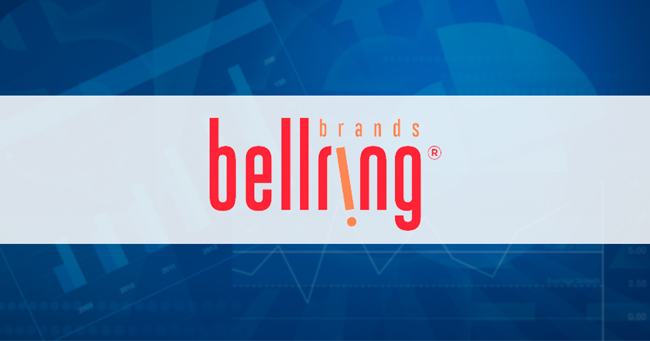
As the company focuses on rebuilding its Premier Protein inventory after significant out of stocks last year, BellRing Brands, Inc., announced fiscal year Q2 2022 net sales growth of 11.7% to $315.2 million, an increase of around $33.1 million compared to last year, according to an earnings report last week.
The St. Louis-based company, makers of Premier Protein shakes and Dymatize powder supplements, among other products, reported operating profit of $33.2 million and raised its fiscal year 2022 net sales guidance to a range of $1.39-$1.43 billion and adjusted EBITDA (non-GAAP) guidance to $258-$268 million.
Net sales of the Premier Protein brand increased 6.5%, while volumes fell 4.4% in the quarter. Ready-to-drink shakes saw net sales rise 8.4% against a volume decline of 3.9%. According to the report, Premier Protein sales “benefited from higher average net selling prices driven by reduced promotional activity and price increases.” Capacity constraints across the manufacturing network continued to impact the brand in Q2, with “certain products” placed on allocation. Meanwhile, net sales of protein brand Dymatize were up 64.9% and volumes rose 25.1%, getting a boost from price increases, strong velocities thanks to category momentum and distribution gains. Net sales of all other products fell by 12.9%.
Gross profit was $87 million, about 27.6% of net sales. Profit was flat from last year, but margin fell from 30.8% of net sales, stemming from higher raw material costs – particularly dairy-based proteins – and freight. Operating profit was $33.2 million, up 112.8% from $15.6 million in fiscal year Q2 2021.
Selling and administrative expenses were $48.9 million, about 15.5% of net sales, rising from $48.2 million (17.1% of sales) last year.
Speaking to investors and analysts during an earnings call, president and CEO Darcy Davenport noted that since BellRing’s IPO in October 2019 and through FY Q1 2022, the company has reduced its funded debt by nearly $250 million and net leverage has fallen from 3.8 to 2.1 times.
“When we went public, we laid out our vision and growth strategies. They included: increasing household penetration, expanding distribution, launching innovation, expanding internationally, and when appropriate, M&A,” Davenport said. “Since our IPO, we have made such great progress against each one of these organic strategies that we have outpaced our shake capacity as well as the capacity in the North American aseptic shake co-manufacturing network. As a result, we are dramatically accelerating our multi-year capacity expansion plan that will support our company’s long-term strategy.”
Davenport said the company anticipates capacity constants will “begin to ease over the next several quarters” at which point volume growth of the RTD shakes will return, with double-digit increases expected in fiscal year 2023. BellRing’s co-packing network is currently producing at needed levels to meet demand, she added, and production is expected to increase every quarter “through the next several years.”
The struggle to return Premier Protein’s shakes to positive volume growth comes after BellRing “drew down inventory to an unsustainable level” in the back half of 2021, Davenport noted, and as a result the protein category will continue to outpace Premier Protein for about the next two quarters.
“Premier Protein continues to demonstrate tremendous strength, despite our need to pull back promotion, marketing and reduce our SKUs in order to dampen demand,” she said. “Premier Protein repeat rates and velocities have held steady, demonstrating our high consumer loyalty. Our trailing 52-week consumption is up 20%, which is on pace with category growth, despite the recent six months of capacity constraints.”
Despite out-of-stocks, Davenport said the bulk of retail partners have held Premier Protein’s shelf space and nothing has “dramatically changed from a competitive standpoint” to threaten the brand’s expected timeline for a return to positive volume growth.
BellRing is also continuing to focus on building the Dymatize brand, she said, which currently has less than 1% household penetration in the U.S. The company sees particular upside in the specialty, club and mass channels.
“I think what’s interesting about Dymatize is that we are seeing growth across all channels, even the channels that historically had been softer, like specialty,” Davenport said. “So if you kind of zoom out over time, specialty had lost some volume to ecommerce. But what’s nice to see is that we’re actually seeing growth across all [channels]. And that’s really because of our new flavors — specifically Dunkin’ and Pebble [which] have done remarkably well across all channels. So when you look at distribution opportunities, the biggest distribution opportunity really is in mass channels.”
The report also follows the completion of BellRing’s spin-off from Post Holdings, Inc. In March, Post completed its distribution to its shareholders of 80.1% of its interest in BellRing (about 78.1 million shares of common stock), which resulted in BellRing becoming the new public parent company of BellRing Intermediate Holdings, Inc. Post now owns 14.2% of BellRing common stock (about 19.4 million shares). As of March 31, there were 136.4 million outstanding shares.
Analysts from Credit Suisse were favorable on the report, offering a neutral rating and noting that “solid results, despite margin pressures, calmed durability fears.” The firm said that BellRing had laid out “reasonable plans” for rebuilding its capacity and noted both Premier Protein and Dymatize have momentum in the market, with the latter beating growth expectations.